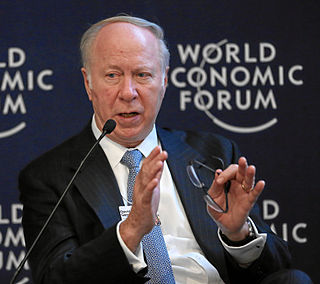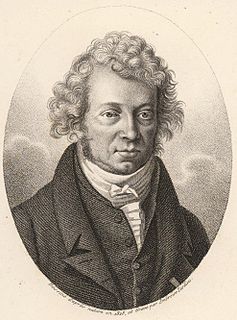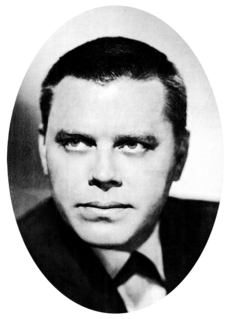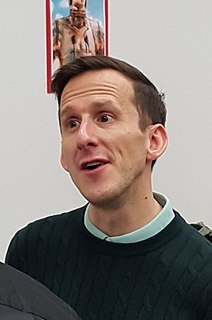Ein Zitat von Robert Lopez
Menschen werden mit der Fähigkeit geboren, Urteile zu fällen. Und sie können nicht anders, als die Informationen, die sie haben, zu nutzen, um etwas über die Welt, in der sie sich befinden, zu erraten. Kategorische Urteile zu fällen, hilft unserer Gesellschaft im Großen und Ganzen.
Verwandte Zitate
Die in Umfang und Fähigkeit begrenzten Sinnesorgane sammeln Informationen nach dem Zufallsprinzip. Diese Teilinformationen werden in Urteile gegliedert, die auf früheren Urteilen basieren, die normalerweise auf den dummen Ideen anderer basieren. Diese falschen Konzepte und Ideen werden dann in einem hochselektiven Speichersystem gespeichert.
Politik ist wie Fußball schauen. Ja, Sie können es direkt auf Ihrem Bildschirm sehen, aber ich denke, viele Leute möchten verstehen, was passiert, warum das Stück so abläuft, wie es ist, und ich denke, dabei kann es ihnen helfen, nicht beim Rendern Urteilen, sondern um den Menschen zu helfen, ihre eigenen Urteile auf fundiertere Weise zu fällen.
Die Verfassung existiert gerade dazu, dass Meinungen und Urteile, auch ästhetische und moralische Urteile über Kunst und Literatur, gebildet, geprüft und geäußert werden können. In der Verfassung heißt es, dass diese Urteile Sache des Einzelnen sind und nicht der Regierung obliegen, selbst mit dem Mandat oder der Zustimmung einer Mehrheit zu entscheiden. Technologie erweitert die Auswahlmöglichkeiten; und es leugnet das Potenzial dieser Revolution, wenn wir davon ausgehen, dass die Regierung am besten in der Lage ist, diese Entscheidungen für uns zu treffen.
Normalerweise wird die Logik in die Untersuchung von Ideen, Urteilen, Argumenten und Methoden unterteilt. Die beiden letzteren werden im Allgemeinen auf Urteile reduziert, das heißt, Argumente werden auf apodiktische Urteile reduziert, die aus bestimmten Prämissen bestimmte Schlussfolgerungen ergeben, und Methode wird auf Urteile reduziert, die das Verfahren vorschreiben, das bei der Suche nach der Wahrheit befolgt werden sollte.
Um angemessene Urteile darüber zu fällen, welche Fragen bedeutsam sind, braucht es sowohl die fundierten Ansichten von Wissenschaftlern, die wissen, was erreicht wurde und welche zukünftigen Entwicklungen vielversprechend sind, als auch die reflektierten Urteile von Vertretern verschiedener Gruppen, die erkennen können, um welche Arten von Informationen es sich handelt am dringendsten benötigt.
Wir nutzen auch unsere Vorstellungskraft und nutzen Abkürzungen, um Lücken in Mustern nichtvisueller Daten zu schließen. Wie bei visuellen Eingaben ziehen wir Schlussfolgerungen und Urteile auf der Grundlage unsicherer und unvollständiger Informationen und kommen zu dem Schluss, dass unser Bild klar und genau ist, wenn wir mit der Analyse der Muster fertig sind. Aber ist es?
Alles sieht wunderschön aus. Im Buch Shhh heißt es, dass Delirie Ihre Wahrnehmung verändert, Ihre Fähigkeit zum klaren Denken beeinträchtigt und Sie daran hindert, fundierte Urteile zu fällen. Aber das sagt es dir nicht: dass die Liebe die ganze Welt in etwas Größeres als sie selbst verwandeln wird.
Das unreife Gewissen ist nicht sein eigener Herr. Es plappert einfach die Entscheidungen anderer nach. Es fällt keine eigenen Urteile; es passt sich lediglich den Urteilen anderer an. Das ist keine wirkliche Freiheit und macht wahre Liebe unmöglich, denn wenn wir wirklich und frei lieben wollen, müssen wir in der Lage sein, einem anderen etwas zu geben, das wirklich uns gehört. Wenn unser Herz nicht uns gehört, fragt Merton, wie können wir es dann einem anderen schenken?




































